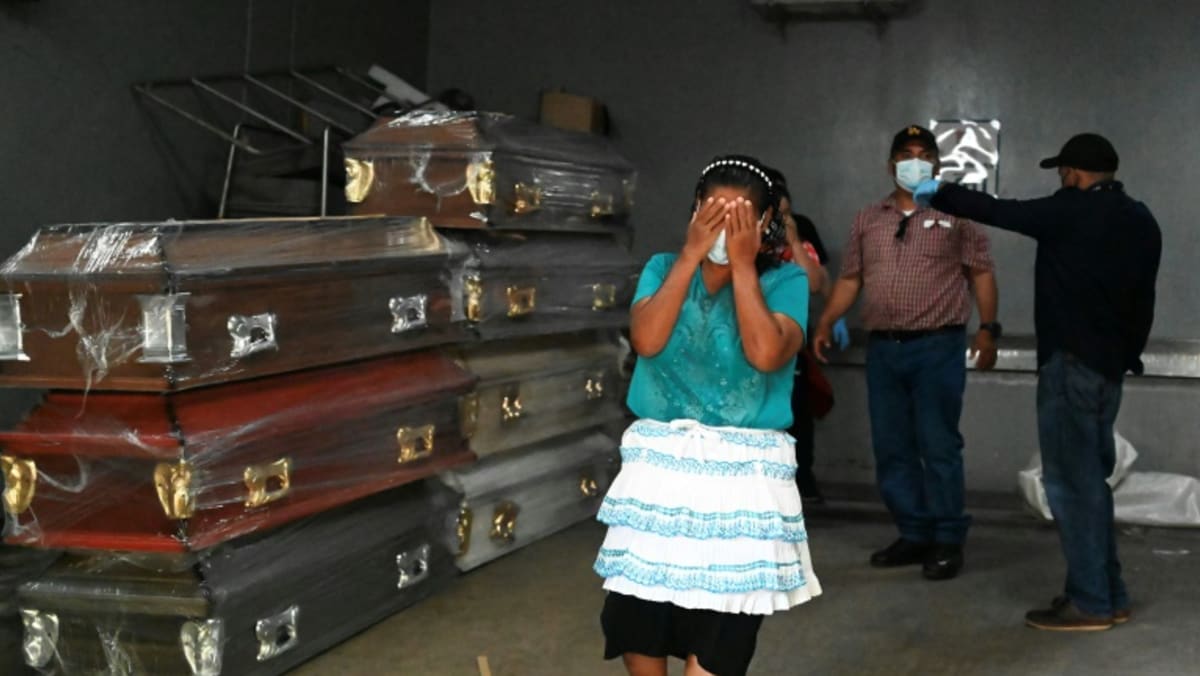
TEGUCIGALPA, June 22 (NNN-AGENCIES) — A vicious battle with guns and fire left at least 46 women dead in a women’s jail in Honduras, a country with a particularly high rate of prison violence and more than 1,000 inmate deaths in 20 years.
As the first bodies were handed over to mourning families for burial, the prosecutor’s office on Wednesday updated the confirmed toll from 41.
It could not say whether all the victims of Tuesday’s deadly battle at a prison about 25km north of the capital Tegucigalpa, had been inmates.
The violence erupted when members of the Barrio 18 gang burst into an area housing the rival Mara Salvatrucha (MS-13) group, shot at them, and set the place on fire, according to authorities and witnesses.
That part of the prison was “completely destroyed” in the blaze, Delma Ordonez, who represents inmates’ relatives, told journalists.
According to police operations director Juan Rochez, the attackers came armed with “more than 21 firearms” and grenades. Eleven suspects have been identified.
A spokeswoman for the Forensic Medicine Directorate, Issa Alvarado, said 23 of the bodies had been identified by Wednesday and released to next-of-kin.
Hundreds of relatives remained gathered at the directorate’s offices in Tegucigalpa, desperate for news on the fate of their loved ones.
Identification was continuing “in complex cases” of badly mutilated bodies, the prosecutor’s office said on its Twitter account.
Most of the victims died in the fire, a spokesperson for the prosecutor’s office, Yuri Mora, said. Some of the bodies were riddled with bullets.
Honduran President Xiomara Castro said Tuesday she was “shocked” by the “monstrous murder of women in CEFAS by gangs in full view and tolerance of security authorities.”
A state of emergency was announced, and Castro dismissed security minister Ramon Sabillon.
Along with neighbors El Salvador and Guatemala, Honduras forms Central America’s so-called “triangle of death” plagued by the murderous gangs called “maras” that control drug trafficking and organized crime.
Drug trafficking groups and gang members are largely responsible for the soaring rate of homicides in Honduras, which at 40 murders per 100,000 inhabitants last year was four times higher than the world average.
Honduras is also a major transit country for Colombian cocaine and other narcotics headed mainly to the United States.
The Office of the UN High Commissioner for Human Rights in Honduras has urged the authorities after Tuesday’s clashes to “investigate the facts, prevent their repetition, and protect the lives of prisoners”.
For its part, Honduras’ human rights ombudsman said prisoners’ rights were not adequately guaranteed.
“It is estimated that at least 1,050 inmates have lost their lives violently in prisons in Honduras since 2003,” it said on its Twitter page.
The worst single event was in February 2012, when 361 prisoners died in a fire at Comayagua prison about 50km north of the capital. — NNN-AGENCIES






